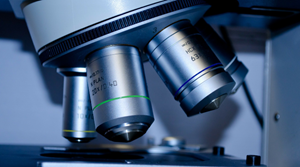EVENTS
The Foundation organises events on key topics in science, research, technology or innovation, bringing together parliamentarians, civil servants, industrialists, researchers, learned societies, charities and others. Those events focus in particular on areas where there are policy decisions needed, which in turn need to be informed by this wide range of inputs and viewpoints. Summary reports are prepared for all events, and these - along with presentation slides, videos of speakers and audio files - are available online after events.
Online teaching in higher education post-Covid

- 2020
- Discussion
- Online
UK Universities have had to move very quickly to introduce more online teaching due to the Covid-19 pandemic. How is this changing higher education pedagogy, and what are the implications for higher education teaching post-covid? In this webinar we explored these issues from the point of view of universities, students and the government.
Read MoreScience, Technology & Research in Universities – Foundation Future Leaders Conference Day 3

- 2020
- Conference, Discussion
- Online
On the third and final day of the FFL conference we discussed what role a university has in tomorrow’s world. Including a keynote speech by Professor Dame Nancy Rothwell, Vice-Chancellor, University of Manchester.
Read MoreResearch and Innovation in Industry – Foundation Future Leader Conference Day 2

- 2020
- Conference, Discussion
- Online
On the second day of the FFL conference we discussed how society encourages innovation in industry. Including keynote speeches by Dr Loubna Bouarfa, Founder and CEO of Okra Technologies and Steve Rees, Vice-President for Discovery Biology, AstraZeneca.
Read MoreScience and Government – Foundation Future Leader Conference Day 1

- 2020
- Conference, Discussion
- Online
On the first day of the FFL conference we discussed how Government uses science. The event included a keynote speech by Sir Patrick Vallance, Government Chief Scientific Advisor.
Read MoreFuture Priorities for UKRI

- 2020
- Online
UK Research and Innovation is 2½ years’ old, and Professor Dame Ottoline Leyser took over as Chief Executive at the end of June 2020. In this webinar, we explored priorities for UKRI going forward in a post-Brexit UK, and how those priorities are shaped by the challenges of coronavirus.
Read MoreSkills Resilience in a Changing World

- 2020
- Discussion
- Online
Employees now need to constantly review, adapt and retrain to ensure successful careers. The imperative may become even more apparent as we emerge from the coronavirus lockdown, with some businesses and sectors being fundamentally changed. This event, hosted jointly by the Foundation for Science and Technology and Resilience First, explored the concept of ‘skills resilience’ which employees will need in order to adopt over the course of their careers to changing working requirements. What should higher and further education being doing to help students gain ‘skills resilience’ before entering the workforce, and what can businesses and government do to support employees once they are in work?
Read MoreThe R&D Roadmap – Levelling Up Across the UK

- 2020
- Discussion
- Online
In July, the Government published the R&D Roadmap, setting out ambitious plans for investing in research and securing the benefits for the economy. A key element of this is the promise of an R&D Place Strategy, designed to unlock local growth and societal benefit across the UK. This webinar discussed the role that R&D can contribute to the “levelling up” agenda, the inequalities in R&D funding across the different nations and regions of the UK, and how the focus on place fits within the overall R&D Roadmap.
Read MoreR&D Roadmap Roundtable

- 2020
- Discussion
- Online
This roundtable brought together 20 Fellows with a wide range of backgrounds and research interests from across the Royal Society of Edinburgh (RSE), Royal Irish Academy (RIA) and Learned Society of Wales (LSW). It was convened to discuss how best to build upon the ambitions and commitments expressed within the 2020 UK Research and Development Roadmap to enhance research and development in the devolved nations of Northern Ireland, Scotland, and Wales.
Read MoreScience and politics: how to bring them together, and keep them apart

- 2020
- Discussion
- Online
In this webinar, we discussed the vital importance of ensuring that politics is informed by science, to ensure that politicians can make decisions aware of the best available evidence. We also explored the concern sometimes expressed that the difference between science advice and political decisions might be blurred. This is particularly relevant for issues such as the current Covid-19 pandemic, when the Government is having to take very complex decisions with far-reaching consequences, and where scientific evidence is a crucial element.
Read MoreThe new normal for business post-coronavirus – supply chains and resilience

- 2020
- Discussion
- Online
This online event focused on how businesses may establish a new “normal” as they emerge from coronavirus, and in particular in the area of supply chains. To what extent will a desire or need for resilience in supply chains alter the very globalised nature of some industries? And what if anything should the UK government be doing to support UK industry in this?
Read MoreOn this day...
Foundation held a debate:
